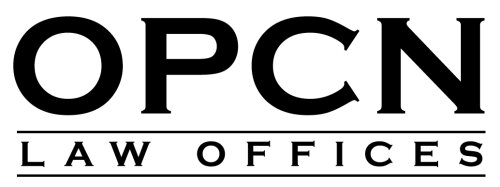Best Venture Capital Lawyers in Quezon City
Share your needs with us, get contacted by law firms.
Free. Takes 2 min.
List of the best lawyers in Quezon City, Philippines
About Venture Capital Law in Quezon City, Philippines
Venture Capital is an important aspect of the business landscape in Quezon City, Philippines. It serves as a means of funding for startups and emerging companies, enabling them to grow and expand their operations. The Venture Capital industry in Quezon City is governed by a set of laws and regulations that are designed to protect the rights of investors and businesses alike.
Why You May Need a Lawyer
Engaging in Venture Capital activities can be complex and involves various legal considerations. Hiring a lawyer who specializes in Venture Capital law can be beneficial in numerous situations, such as:
- Negotiating investment agreements
- Drafting and reviewing legal contracts
- Ensuring compliance with relevant laws and regulations
- Resolving disputes between investors and businesses
- Obtaining legal advice on investment strategies and risks
Local Laws Overview
Here are some key aspects of local laws that are particularly relevant to Venture Capital in Quezon City, Philippines:
- Securities Regulation Code: This law regulates the offering and sale of securities in the Philippines, including securities offered by venture capital firms.
- Philippine Competition Act: This act prevents anti-competitive practices and promotes fair business competition, which may impact Venture Capital activities.
- Foreign Investment Act: This law outlines the rules and regulations for foreign investments in the Philippines, including those made through Venture Capital.
- Cybercrime Prevention Act: This act deals with offenses related to computer systems and the internet, which may have implications for technology-focused Venture Capital investments.
Frequently Asked Questions
1. What criteria do venture capitalists consider before investing in a startup?
Venture capitalists typically consider factors such as the growth potential of the startup, the strength of its management team, the market demand for its products or services, and the scalability of its business model.
2. What types of investment structures are commonly used in Venture Capital?
Common investment structures in Venture Capital include equity financing, convertible debt, and preferred stock. These structures provide different rights, benefits, and risks for both the investors and the startup.
3. How long does a typical Venture Capital investment last?
The duration of a Venture Capital investment can vary but is typically between three to seven years. This timeframe allows the startup enough time to utilize the investment and achieve growth before a potential exit, such as through an initial public offering or acquisition.
4. How can a startup seek Venture Capital funding?
Startups can seek Venture Capital funding by preparing a comprehensive business plan, identifying potential Venture Capital firms, networking with industry experts, and presenting their business idea and growth potential to potential investors.
5. What legal risks should startups be aware of when engaging in Venture Capital activities?
Startups should be aware of legal risks such as intellectual property disputes, breach of investment agreements, non-compliance with securities regulations, and violations of competition laws. Seeking legal advice can help mitigate these risks.
Additional Resources
If you need further information or legal advice on Venture Capital in Quezon City, Philippines, consider reaching out to the following resources:
- Securities and Exchange Commission (SEC) - www.sec.gov.ph
- Quezon City Chamber of Commerce - www.qcchamber.org
- Philippine Venture Capital Association - www.philvca.com
Next Steps
If you require legal assistance in Venture Capital in Quezon City, Philippines, the next steps you can take are:
- Research and identify experienced lawyers or law firms specializing in Venture Capital law.
- Schedule consultations with lawyers to discuss your specific needs and concerns.
- During consultations, ask about their expertise, experience, and fee structure to make an informed decision.
- Select a lawyer who best suits your requirements and discuss the scope of their services.
- Review and sign engagement letters or contracts with the chosen lawyer before proceeding with any legal work.
Lawzana helps you find the best lawyers and law firms in Quezon City through a curated and pre-screened list of qualified legal professionals. Our platform offers rankings and detailed profiles of attorneys and law firms, allowing you to compare based on practice areas, including Venture Capital, experience, and client feedback.
Each profile includes a description of the firm's areas of practice, client reviews, team members and partners, year of establishment, spoken languages, office locations, contact information, social media presence, and any published articles or resources. Most firms on our platform speak English and are experienced in both local and international legal matters.
Get a quote from top-rated law firms in Quezon City, Philippines — quickly, securely, and without unnecessary hassle.
Disclaimer:
The information provided on this page is for general informational purposes only and does not constitute legal advice. While we strive to ensure the accuracy and relevance of the content, legal information may change over time, and interpretations of the law can vary. You should always consult with a qualified legal professional for advice specific to your situation.
We disclaim all liability for actions taken or not taken based on the content of this page. If you believe any information is incorrect or outdated, please contact us, and we will review and update it where appropriate.














